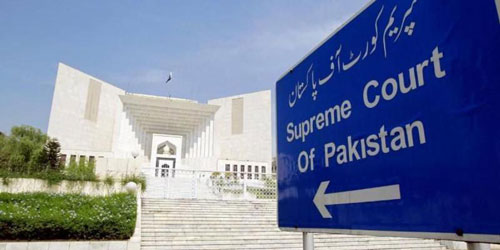Observer Report
Islamabad
The Supreme Court (SC) has adjourned till Monday its hearing on the presidential reference, seeking an opinion on open balloting for the upcoming Senate elections.
A five-member larger bench headed by Chief Justice Gulzar Ahmed and comprising Justice Mushir Alam, Justice Umar Ata Bandial, Justice Ijaz Ul Ahsan and Justice Yahya Afridi heard the reference on Thursday with the proceedings revolving around ascertaining what the law has to say about the Senate composition and the election procedure.
Attorney General for Pakistan Khalid Jawed Khan said that he wanted to start his arguments with questions from Justice Yahya Afridi.
Answering a question about not sending the issue to the Parliament, the attorney-general said that the federation had approached the Supreme Court for its opinion.
He said that the the government’s case was regarding the interpretation of Article 226. Justice Ijaz said that it is the Parliament that makes laws and the Supreme Court interprets them.
The attorney-general said that the Supreme Court had ruled 23 years ago that decisions should be made without distinguishing between political and non-political questions.
“Every country has a supreme court or a constitutional court to interpret constitutional matters,” said the AGP, adding that Pakistan’s Supreme Court is the constitutional court.
“In many countries, including Bangladesh, India, Sri Lanka and the United States, the Supreme Court interprets the Constitution in constitutional and political matters,” he said
The attorney-general said if political matters prevail over constitutional matters, then the court avoids these matters. The Supreme Court has also interpreted political issues several times, he added.
He noted that the Supreme Court had often referred political matters back to the Parliament.










